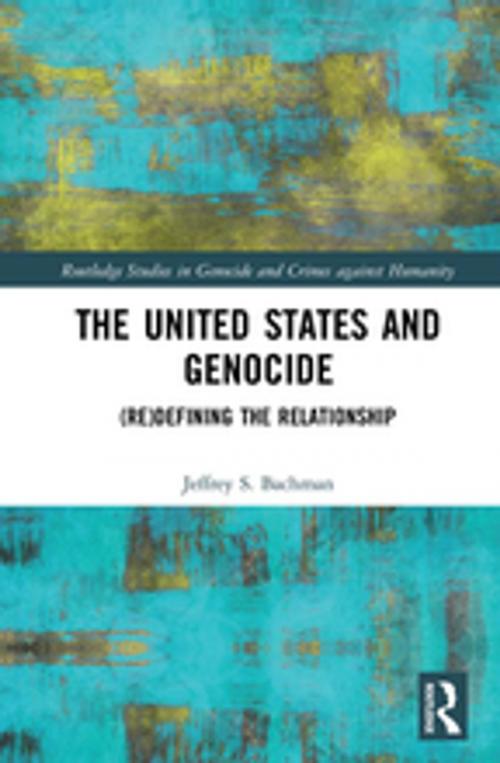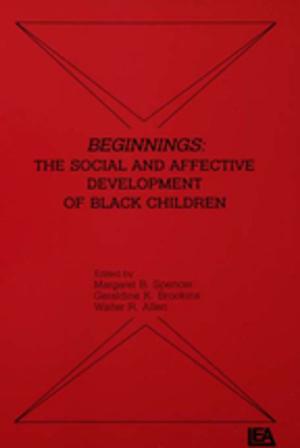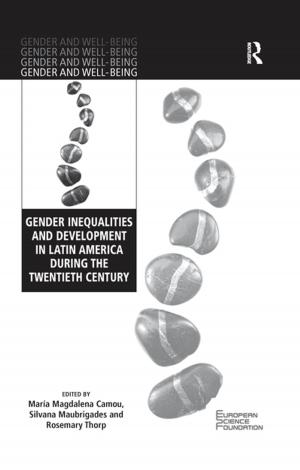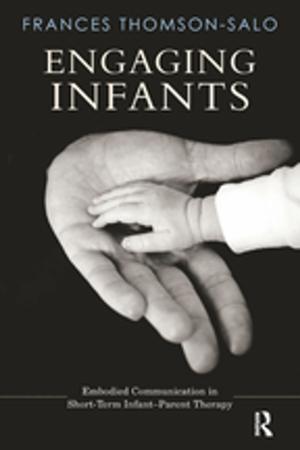The United States and Genocide
(Re)Defining the Relationship
Nonfiction, Social & Cultural Studies, Political Science, International, International Relations, Politics, History & Theory| Author: | Jeffrey S. Bachman | ISBN: | 9781351692168 |
| Publisher: | Taylor and Francis | Publication: | November 22, 2017 |
| Imprint: | Routledge | Language: | English |
| Author: | Jeffrey S. Bachman |
| ISBN: | 9781351692168 |
| Publisher: | Taylor and Francis |
| Publication: | November 22, 2017 |
| Imprint: | Routledge |
| Language: | English |
There exists a dominant narrative that essentially defines the US’ relationship with genocide through what the US has failed to do to stop or prevent genocide, rather than through how its actions have contributed to the commission of genocide. This narrative acts to conceal the true nature of the US’ relationship with many of the governments that have committed genocide since the Holocaust, as well as the US’ own actions. In response, this book challenges the dominant narrative through a comprehensive analysis of the US’ relationship with genocide.
The analysis is situated within the broader genocide studies literature, while emphasizing the role of state responsibility for the commission of genocide and the crime’s ancillary acts. The book addresses how a culture of impunity contributes to the resiliency of the dominant narrative in the face of considerable evidence that challenges it. Bachman’s narrative presents a far darker relationship between the US and genocide, one that has developed from the start of the Genocide Convention’s negotiations and has extended all the way to present day, as can be seen in the relationships the US maintains with potentially genocidal regimes, from Saudi Arabia to Myanmar.
This book will be of interest to scholars, postgraduates, and students of genocide studies, US foreign policy, and human rights. A secondary readership may be found in those who study international law and international relations.
There exists a dominant narrative that essentially defines the US’ relationship with genocide through what the US has failed to do to stop or prevent genocide, rather than through how its actions have contributed to the commission of genocide. This narrative acts to conceal the true nature of the US’ relationship with many of the governments that have committed genocide since the Holocaust, as well as the US’ own actions. In response, this book challenges the dominant narrative through a comprehensive analysis of the US’ relationship with genocide.
The analysis is situated within the broader genocide studies literature, while emphasizing the role of state responsibility for the commission of genocide and the crime’s ancillary acts. The book addresses how a culture of impunity contributes to the resiliency of the dominant narrative in the face of considerable evidence that challenges it. Bachman’s narrative presents a far darker relationship between the US and genocide, one that has developed from the start of the Genocide Convention’s negotiations and has extended all the way to present day, as can be seen in the relationships the US maintains with potentially genocidal regimes, from Saudi Arabia to Myanmar.
This book will be of interest to scholars, postgraduates, and students of genocide studies, US foreign policy, and human rights. A secondary readership may be found in those who study international law and international relations.















